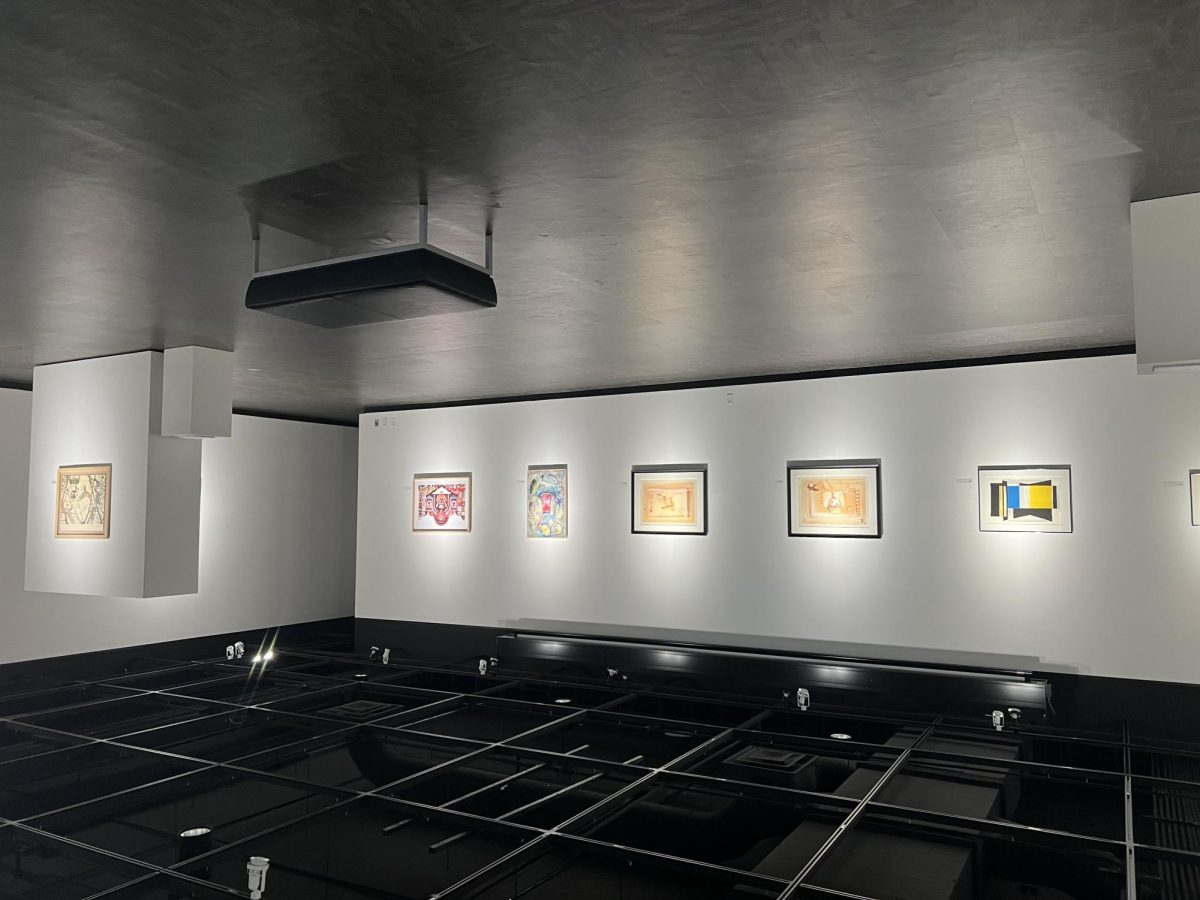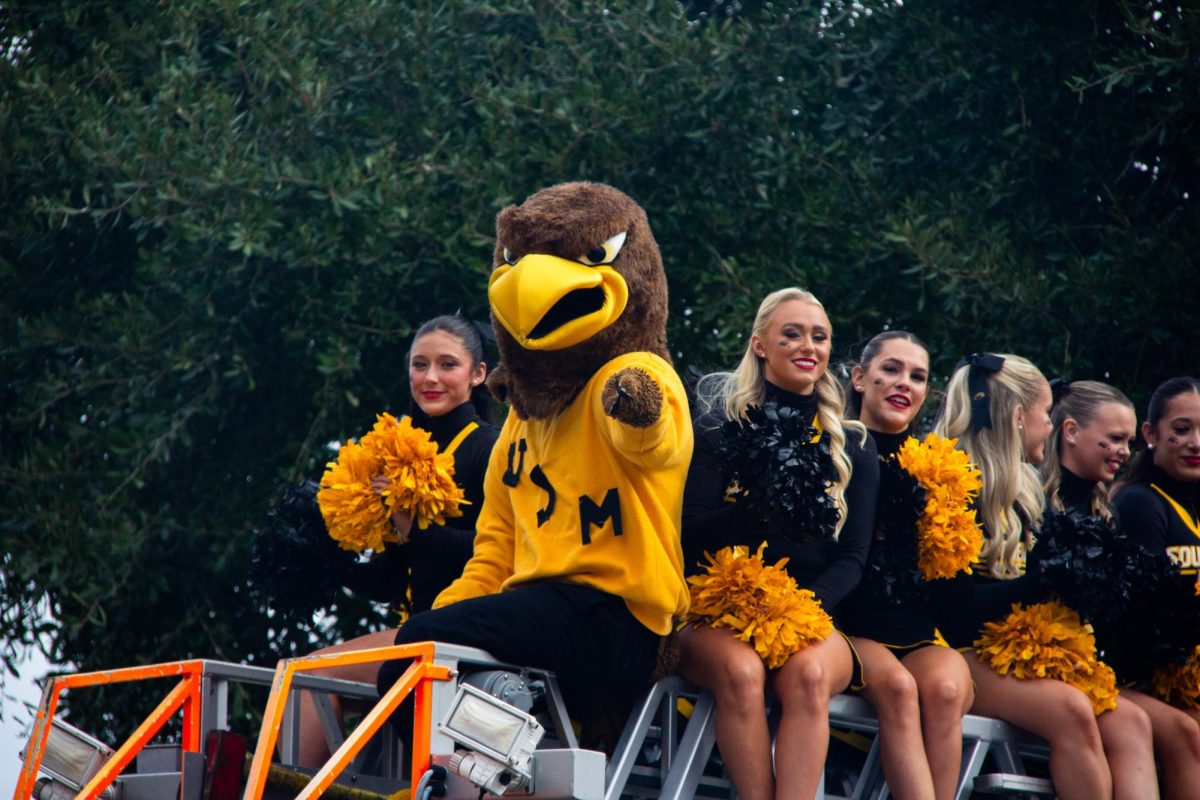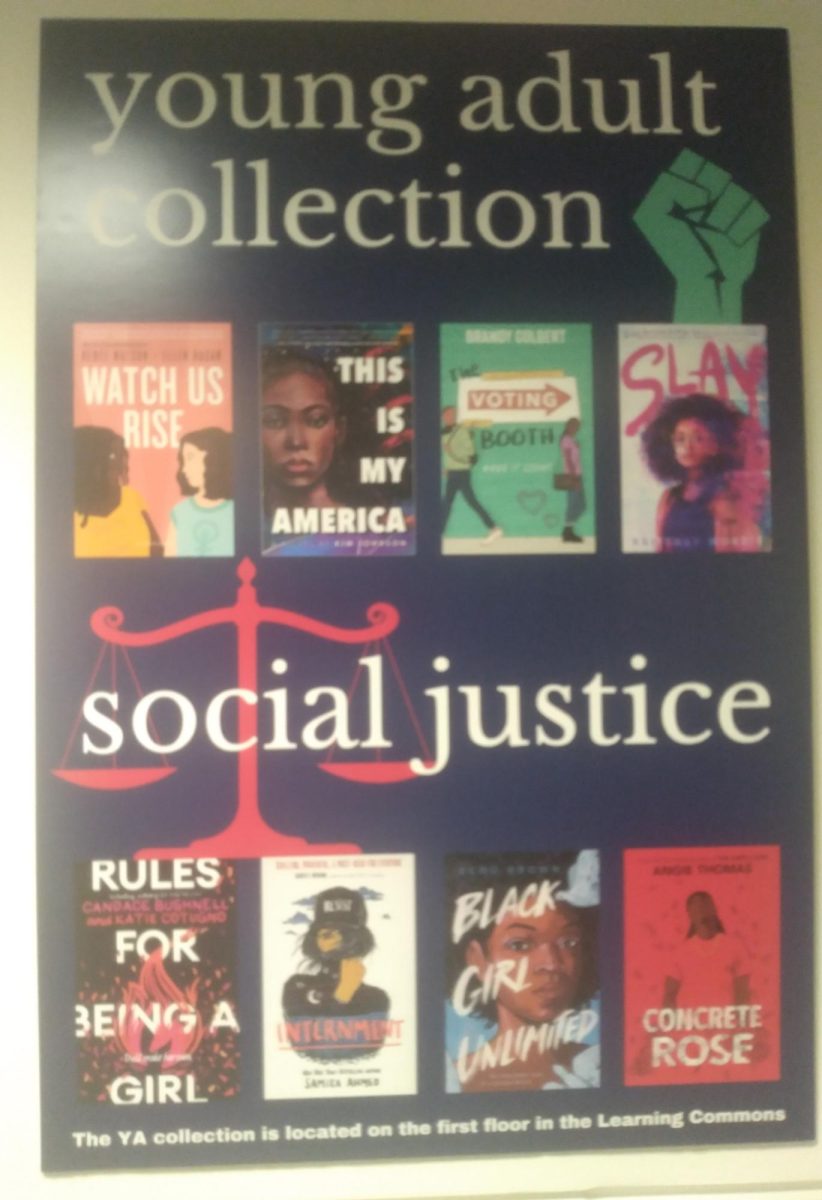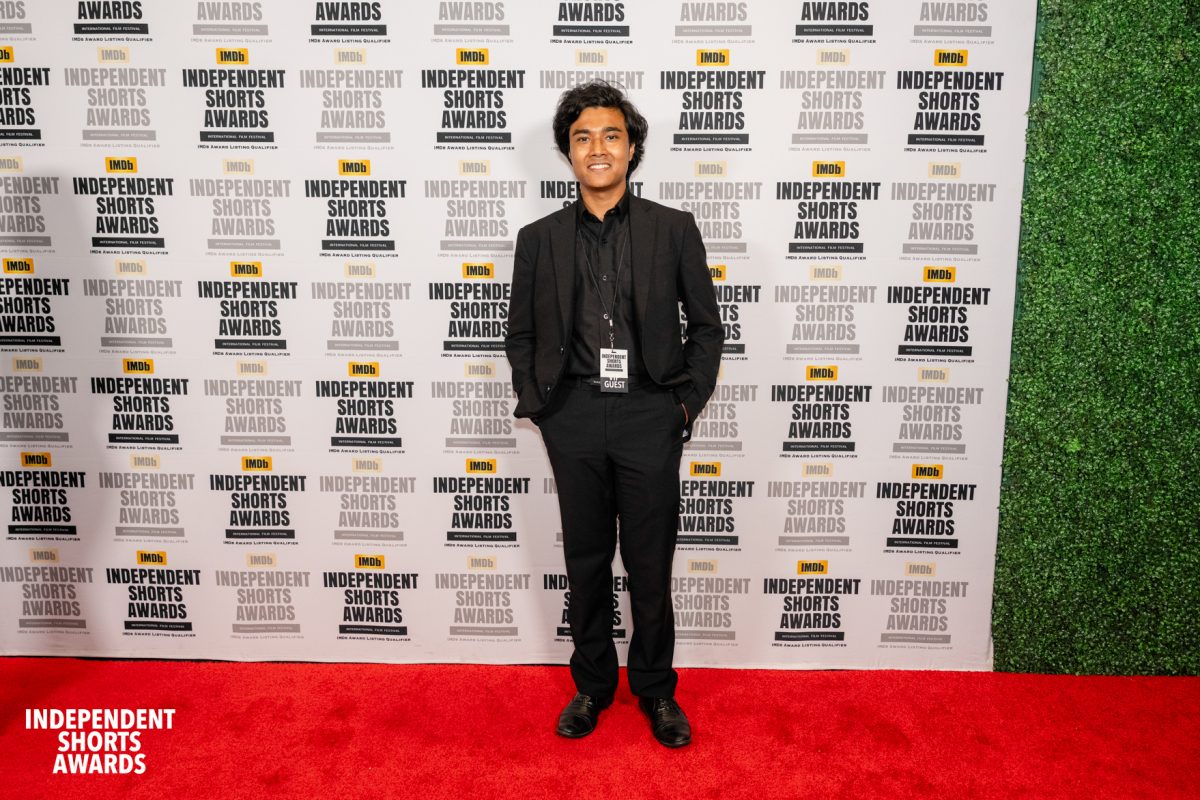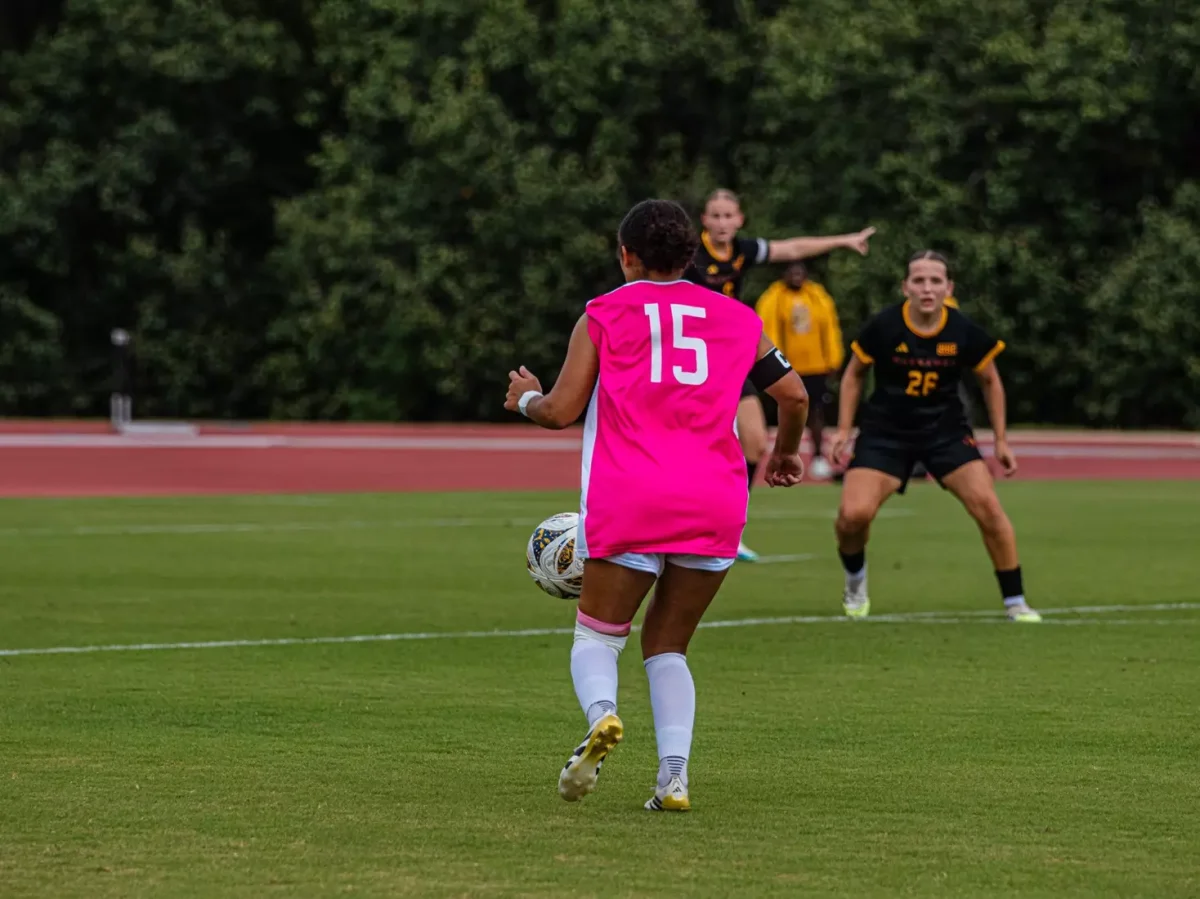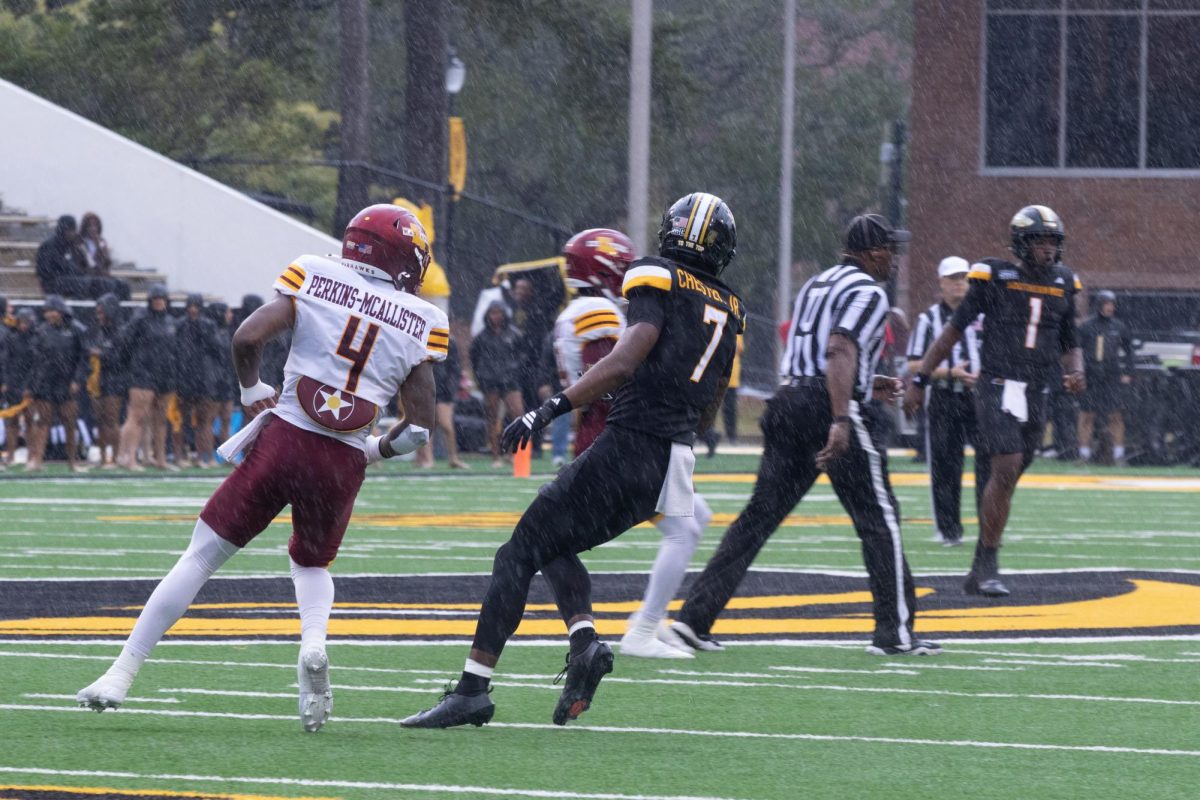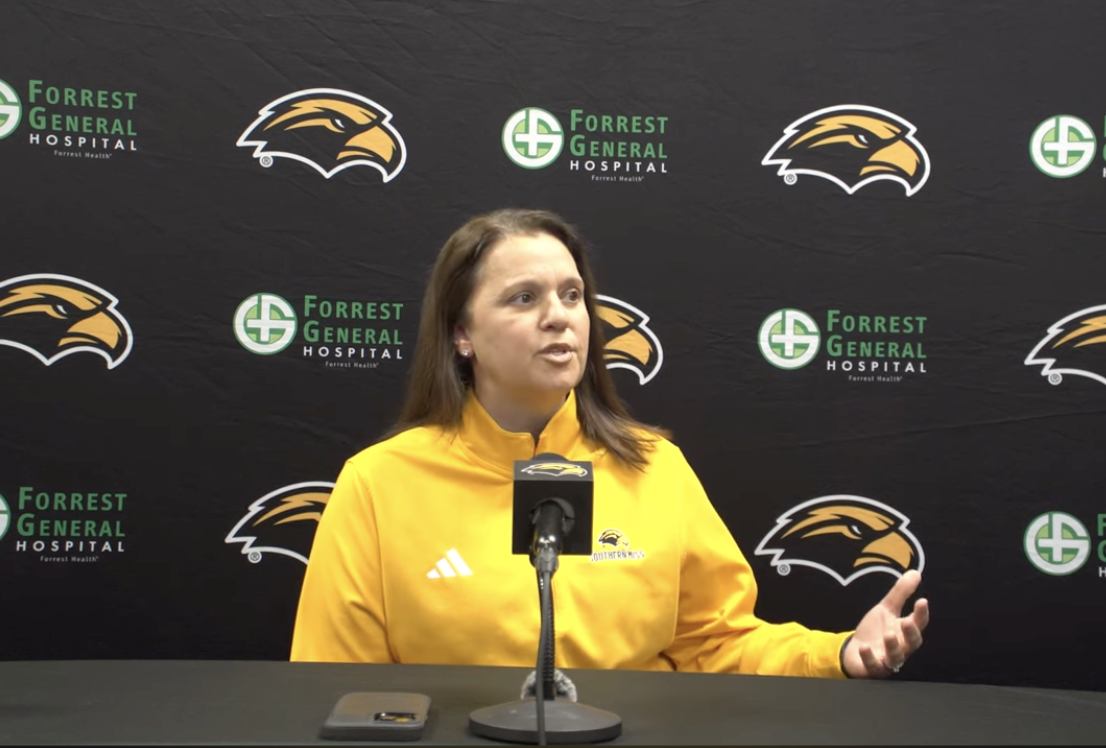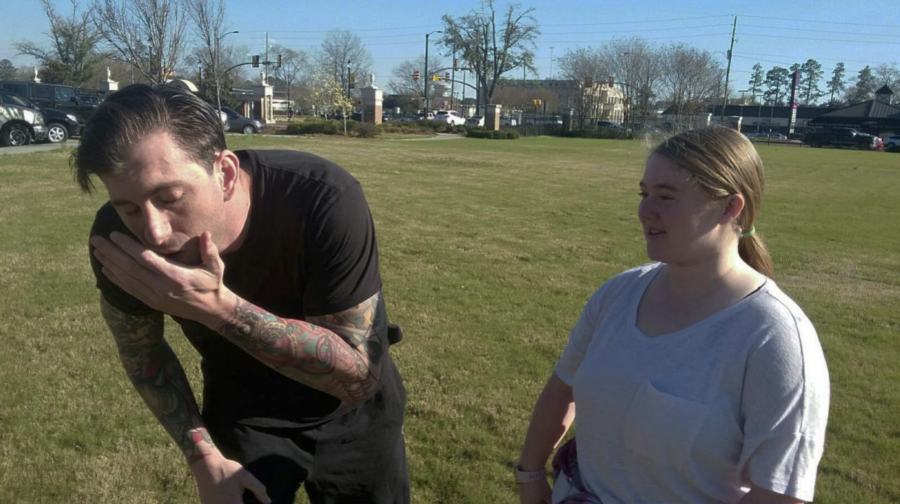On Fridays, Southern Miss theatre students get together on stage not to act or dance, but to fight.
Specifically, they learn about stage combat, which is a form of theatrics intended to give off the illusion the participants are fighting. Stage combat shares many similarities with professional wrestling, which is what enticed first year graduate student Cody Alexander to the group. Alexander was a professional wrestler for eight years.
“I came to Southern Miss partly because of the emphasis they put on combat in their theatre curriculum, and given my background in wrestling, I was interested in what the program offered. I eventually joined the group after learning about it from one of my teachers, Caitlyn Herzlinger,” Alexander said.
“I believe it’s good for character building. You learn a lot about yourself through these kinds of practices both physically and mentally, but also, you learn trust,” Alexander said. “We must always trust our partner when we are on stage with and they must trust us. If there is no trust, then the story cannot be successfully told.”
Because of his wrestling experience, Alexander said being able to emote or react to the situations has been helpful in creating a feeling of authenticity to each strike or move. He said first-timers are so focused on getting the combat right that they often forget the in-between things to sell the experience.
Fellow students Moses Williams and Mollye Ladner founded the stage combat group.
“I take the helm on most of the scheduling and rely on Moses when there’s an issue I can’t solve. We have a good selection of props at our disposal, so if we’re not working on certification in a specific weapon, we jump around a lot,” Ladner said. Ladner is a senior theatre performance major.
Each semester, the group focuses on different fighting styles and weapons.
“Much of the hand-to-hand combat techniques we’re learning are review for me, but what I find most interesting is how the teacher emphasizes intimacy and consent, so we know when to show respect, but more importantly, when to say ‘no,’” Alexander explained.
For some students, learning how to use weapons and coordinate routines helps build character. They are also more encouraged to be more open beyond the stage.
“I’ve learned unarmed fighting techniques, how to swing a broadsword and my personal favorite, a quarterstaff. I’m a big fan of Jackie Chan, Bruce Lee and Michael Jai White, so to learn anything that slightly resembles the work of my idols brings me so much joy,” Sheldon Mba, a third-year graduate student, said.
Gracyn Taylor, a sophomore theatre major, said that learning how to use a broadsword gave her a clearer understanding of the awareness an actor must have to use the weapons convincingly.
“Taking stage combat has pushed me beyond my day to day comfortability. It has certainly helped me find confidence in my strengths, while driving me to further explore and nurture my weaknesses,” Taylor said.
Taylor Alleman, a sophomore acting major, described stage combat as an incredible experience and taught herself things she couldn’t imagine doing. She said it’s encouraged her to try different aspects of theater besides musical theater.
“The most interesting aspect to me is learning how to stage and choreograph a fight with an audience in mind. As an actor, it’s something you don’t normally think about, but to have that sense of awareness helps out,” Alleman said.
Mba said anyone, regardless of their background limitations should sign up for stage combat or something similar since it not only develops one’s rhythm and coordination, but also their self-confidence.
“Even if you’re not interested in performing, it’s still a fun time, but if you’re a serious actor looking to do something big, this knowledge is indispensable,” Ladner said. “Stage combat is an intricate and fun craft that can help anyone looking to break from their daily routines for a moment of self-discovery.”

